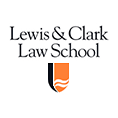(510) 542-9698Tap to Call This Lawyer

Joshua J. Schroeder
Author. Lawyer. Scholar.
Badges
Claimed Lawyer ProfileQ&A
Biography
Joshua J. Schroeder practices a wide array of law in California including immigration, intellectual property, and constitutional law including civil and criminal appeals, habeas corpus, and other post-conviction relief.
Practice Areas
- Civil Rights
- Discrimination, Police Misconduct, Privacy Law
- Appeals & Appellate
- Civil Appeals, Federal Appeals
- Immigration Law
- Asylum, Citizenship, Deportation Defense, Family Visas, Green Cards, Immigration Appeals
- Intellectual Property
Additional Practice Area
- Constitutional Law
Jurisdictions Admitted to Practice
- California
- State Bar of California
-

- Oregon
- Oregon State Bar
-

- 9th Circuit
-

Education
- Lewis & Clark Law School
- J.D. (2013) | Law
- -
-

- Westmont College
- B.A. (2008) | Philosophy
- -
-

Professional Associations
- SchroederLaw
- Owner/Founder
- - Current
-

- State Bar of California
- Member
- - Current
-

- Oregon State Bar
- Member
- - Current
-

Publications
Articles & Publications
Websites & Blogs
- Website
- SchroederLaw
Legal Answers
1 Questions Answered
- Q. Our account got terminated by YouTube
- A: Greetings! Here I will discuss only general information regarding the topic you mentioned here. Nothing I express below creates a lawyer/client relationship. I encourage anyone experiencing a de-platforming issue to schedule a consultation with a lawyer that knows this practice area to get the ball rolling on your matter.
De-platforming can be a serious issue for internet content creators who make their money from streaming content online. The way the law works in a de-platforming matter might depend upon whether copyrighted content or illegal/illicit material was being shared or engaged with on an internet platform and/or the personal behavior exhibited towards the internet platform ... Read More
Contact & Map